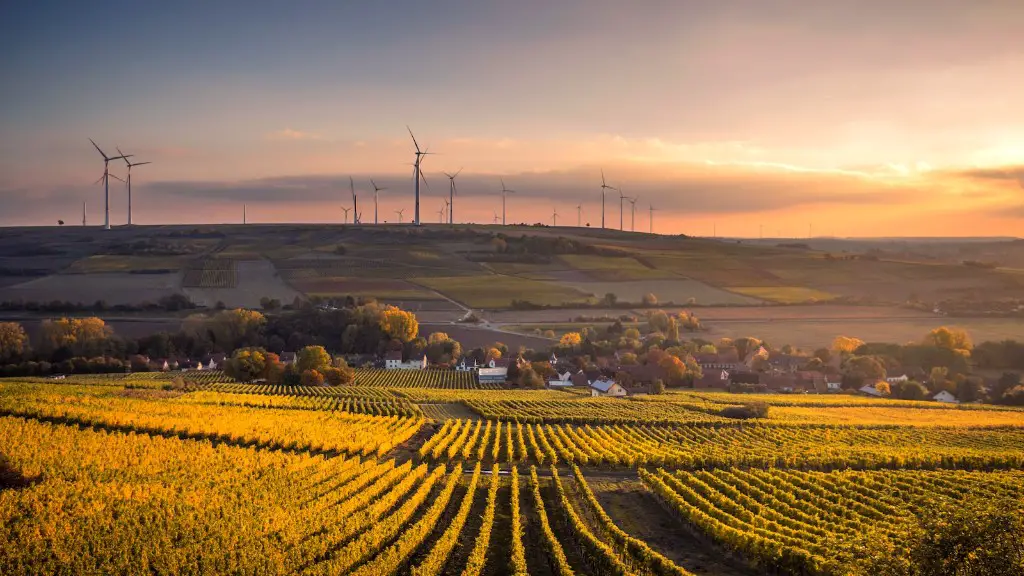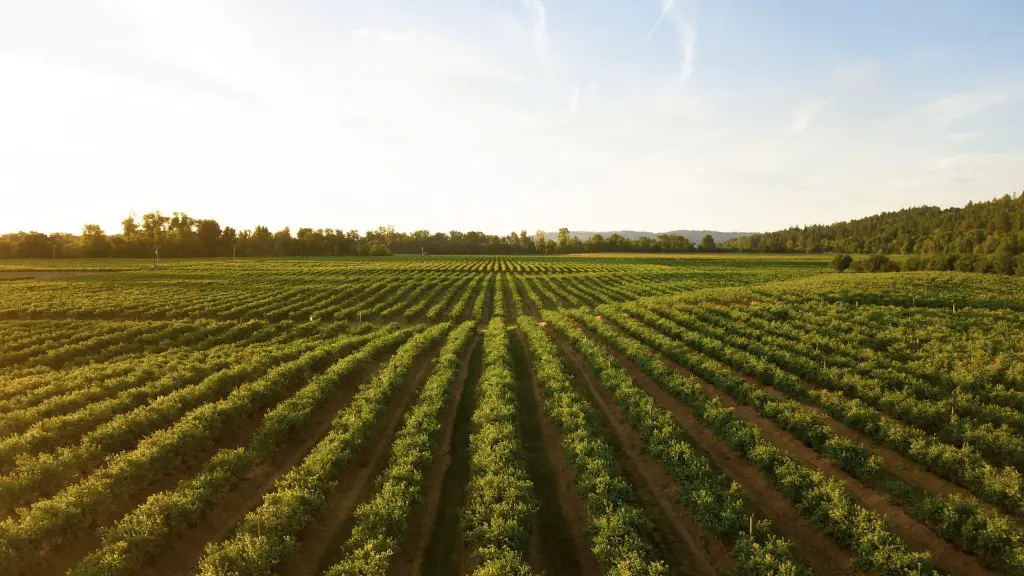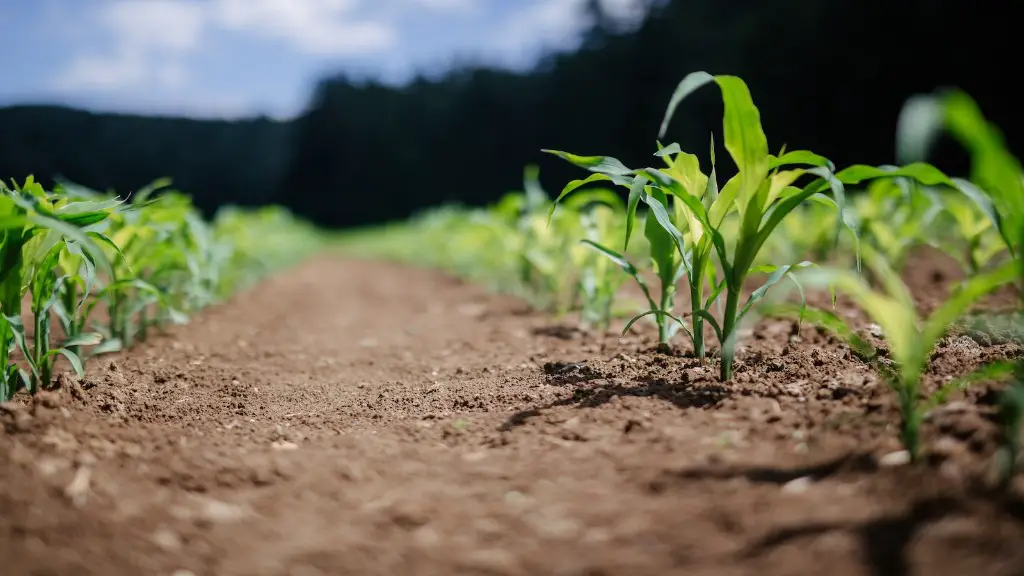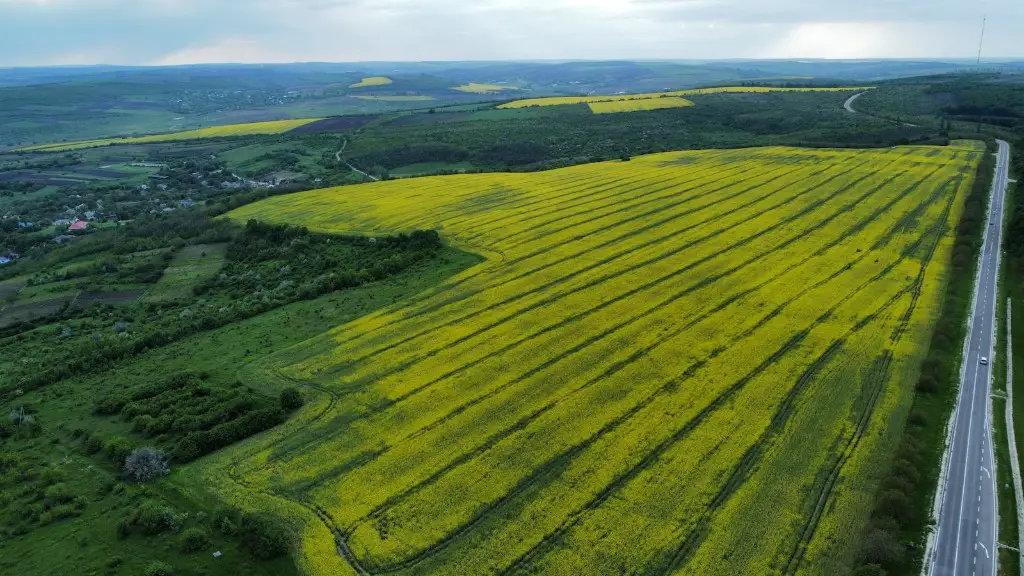Agriculture has undergone dramatic changes in the last 10 years. With advances in technology, agricultural processes have become significantly more efficient, resulting in significant cost savings and increased yields. There have been some downsides as well, such as the loss of traditional practices due to mechanization and a decrease in the quality of agricultural products due to the loss of wild biodiversity. Nevertheless, the overall changes in agriculture in the last 10 years have been mostly positive and beneficial to farmers around the world.
Technology has had a major impact on the way in which farmers cultivate their land by introducing new seed breeding techniques and precision technologies such as GPS-guided tractors. As a result, crops are able to be planted more accurately and yields are improved. Moreover, the use of weed control technology and crop management systems have enabled farmers to better manage their fields, creating even greater efficiency. In addition, new data-driven insights into crop management have enabled farmers to make better decisions regarding planting, fertilizing and harvesting.
While technology has certainly had an impact on agriculture, it is also true that climate change has had an enormous effect as well. Global warming has led to more extreme weather patterns, causing droughts and floods, which can damage crops. In addition, rising soil temperatures, increased evapotranspiration and higher carbon dioxide levels in the atmosphere have all had a negative effect on crop yields. Farmers having been adopting climate-smart farming practices including agroecology and permaculture, which have enabled them to adapt to the changing climate and still produce high-quality crops.
In addition to technology and climate change, the consumer’s attitudes and preferences towards sustainability and food innovation have also had a major impact on the way in which modern farmers produce. Consumers are more conscious than ever before about the origin of their food products, supporting local and organic producers. As a result, farmers have had to invest more in sustainable methods of growing and processing food, such as crop rotation and integrated pest management. These methods have enabled farmers to make a living while protecting their land and other natural resources.
Over the last 10 years, the world has seen massive changes in the way we produce food. Technology and climate change have revolutionized the way we farm, while consumer behavior and preferences have opened up new avenues for production. While there have been both negative and positive effects on agriculture, the overall impact has been mostly positive and enabled farmers to become more efficient, productive and sustainable.
Climate Change Impacts
Climate change has had a tremendous impact on agriculture in the last 10 years, both in terms of increased temperatures and droughts and floods caused by changing weather patterns. These changing patterns have caused crop yields to decrease, as well as soil moisture levels, with the result beinging lowered agricultural productivity and higher costs. In response, many farmers have been adapting to climate change by incorporating climate-smart farming practices such as agroecology and permaculture, which focus on soil health, water conservation and integrated pest management.
In addition to changes in agricultural practices, climate change has also forced many farmers to switch to drought-resistant varieties of crops, which are better suited to the changing climate. For those who are unable to switch, more mechanization has been necessary in order to simultaneously reduce labor costs, increase efficiency and manage water resources more efficiently. Moreover, farmers have also been investing in water saving technologies such as drip irrigation and sprinkler systems in order to reduce their water usage.
The introduction of genetically modified (GM) crops has also been an impact of climate change, as these crops are often more resilient to extreme weather conditions and pest infestations than non-GM varieties. GM crops have been a source of controversy, with some consumers being wary of their safety, while others claim they are necessary to ensure food security in a rapidly changing climate. However, it is clear they have had an impact on modern agriculture, as GM crops are now widely grown around the world.
While climate change has caused significant changes in the way modern agricultural is conducted, with some negative effects, it has also created opportunities for farmers to develop more efficient and sustainable methods of production. By investing in climate-smart farming practices and investing in new technologies such as drip irrigation, farmers can help mitigate the effects of climate change and ensure that their land remains productive and profitable in the future.
Use of Technology
The use of technology in modern agriculture has significantly transformed the landscape in the last 10 years. Satellites, drones and digital sensors have enabled farmers to better monitor and manage their land by providing location-specific data and information about soil, water and weather conditions. This data can be used to increase crop productivity and efficiency, as well as optimize inputs such as water and fertilizers. Moreover, advances in technology have led to the introduction of precision agriculture techniques such as GPS-guided tractors and automated irrigation systems, all of which have helped to reduce labor costs and increase yields.
The advances in technology have also enabled farmers to connect with markets in new ways, allowing them to sell their produce directly to consumers, thereby avoiding intermediaries and the fear of supply chain disruptions. This has been especially beneficial to small-scale and organic farmers, who are able to retain a greater portion of the profits from their produce than ever before. Moreover, technology has made it easier for farmers to access resources such as farm loans and grants, as well as receive advice from agricultural experts.
Increasing consumer interest in sustainability and food innovation has also spurred the development of technology for more ethical and responsible food production. Tools such as traceability systems allow consumers to track their food from farm to plate, ensuring that the products are safe, authentic and free from environmental pollutants. These tools are becoming increasingly important as consumers continue to demand transparency from producers.
The last 10 years have seen a revolution in agricultural technology, with advances in satellite technology, drones, automation and data-driven insights enabling farmers to produce food in a more efficient and sustainable manner with drastically reduced costs. This has created opportunities for farmers to engage with markets in new ways, while also giving consumers greater visibility and transparency regarding the production of their food.
Loss of Biodiversity
Over the last 10 years, there has been an increase in the use of chemical fertilizers and pesticides, as well as a decrease in the amount of wild biodiversity, such as trees and other plants, which has had a negative effect on agriculture. The use of chemicals has led to soil contamination, depletion of water resources and the loss of wild biodiversity. This has had a serious impact on the ability of farmers to produce food in a sustainable and responsible manner.
In addition, the loss of wild biodiversity has led to a decrease in the amount of pollinators, such as bees and butterflies, which are necessary for crop production. This has had a direct impact on crop yields, as fewer pollinators leads to fewer flowers, which reduces the amount of fruit and vegetables that can be harvested. Without pollinators, farmers are forced to use more chemical fertilizers and pesticides, which further deteriorates the soil, water and air.
The lack of biodiversity has also had an impact on the quality of agricultural products, as wild varieties are often more nutrient-dense than the hybridized varieties that are most commonly used in commercial agriculture. This has led to a decrease in the nutritional value of food products, with consumers often being unaware of the lower nutritional content of their food. Moreover, the loss of wild varieties has led to a decrease in the diversity of food products, limiting the number of foods that consumers can choose from.
In an effort to address the impact of the lack of biodiversity, many farmers have been adopting sustainable practices, such as agroforestry and permaculture, which focus on the preservation of natural habitats and the conservation of wild biodiversity. These techniques have allowed farmers to produce food in a more environmentally-friendly manner, while also encouraging biodiversity and improving the quality of agricultural products.
Societal Impact
In the last 10 years, the changes in agriculture have had a profound effect on society in a number of ways. Firstly, the increased efficiency enabled by advancements in technology and the introduction of climate-smart practices has enabled many small-scale and organic farmers to make a living, thereby greatly reducing poverty in many areas of the world. In addition, society has also benefited from improved access to healthy and nutritious food, as well as increased visibility and transparency into the production and sourcing of food products.
Moreover, the changes in agriculture have had positive implications on the environment, with many farmers implementing sustainable practices such as crop rotation and integrated pest management, which have led to reduced pesticide usage and fewer emissions. This has helped to protect the soil, water and air, as well as reduce the emission of greenhouse gases and contribute to a more resilient food system, particularly in the face of climate change.
Lastly, the changes in the way we produce food, coupled with a shift towards more sustainable farming practices, has enabled society to become more resilient in the face of natural disasters and other environmental crises. This increased resilience has allowed communities to remain productive, even in extreme conditions and enabled more sustainable and responsible food production.
The changes in agriculture over the past 10 years have had a tremendous effect on society in a number of ways, ensuring improved access to healthier food, greater economic opportunity and increased resilience in the face of climate change. By continuing to invest in technologies and strategies that promote sustainability and efficient production, we can ensure a more equitable and sustainable food system that benefits both farmers and consumers alike.





